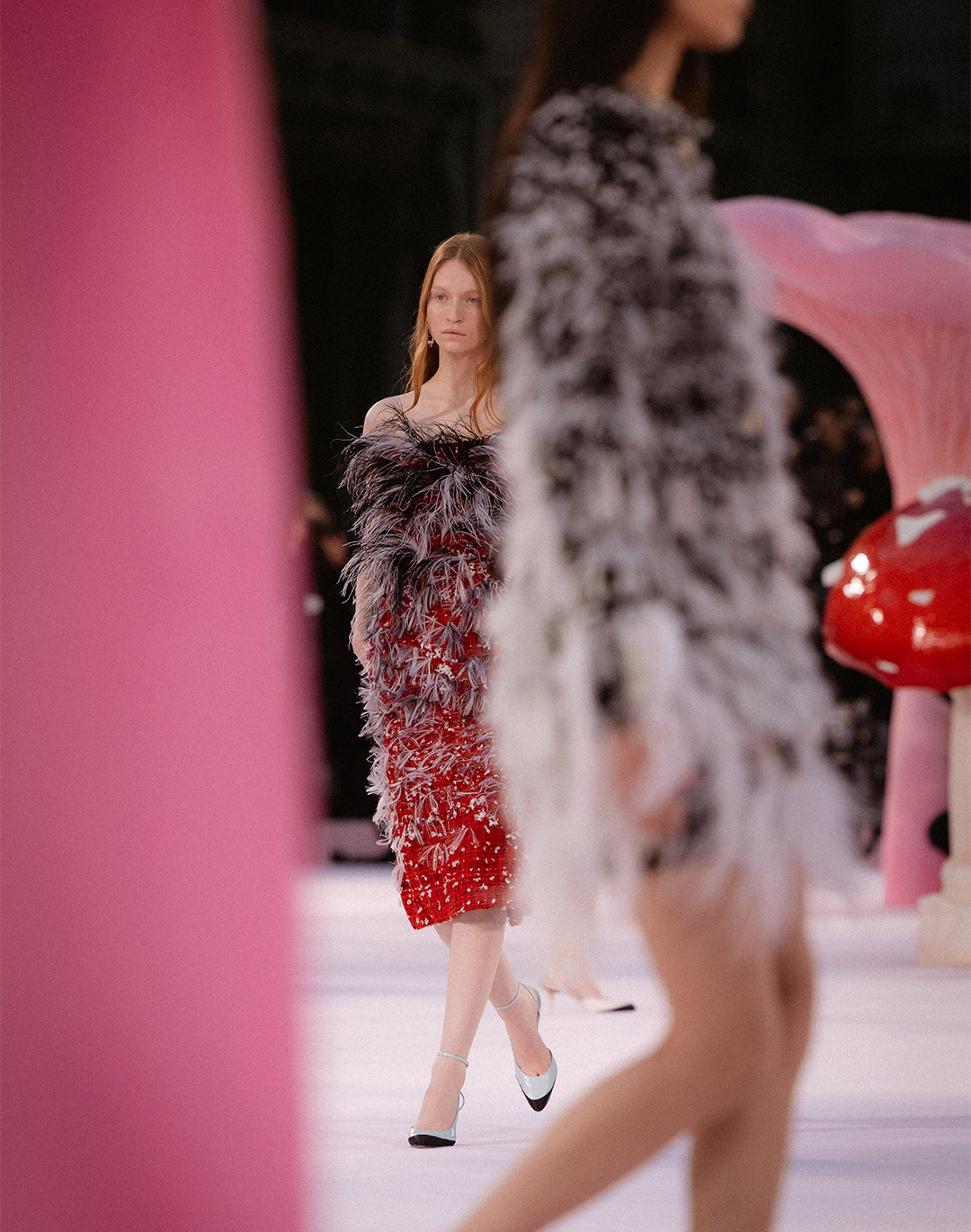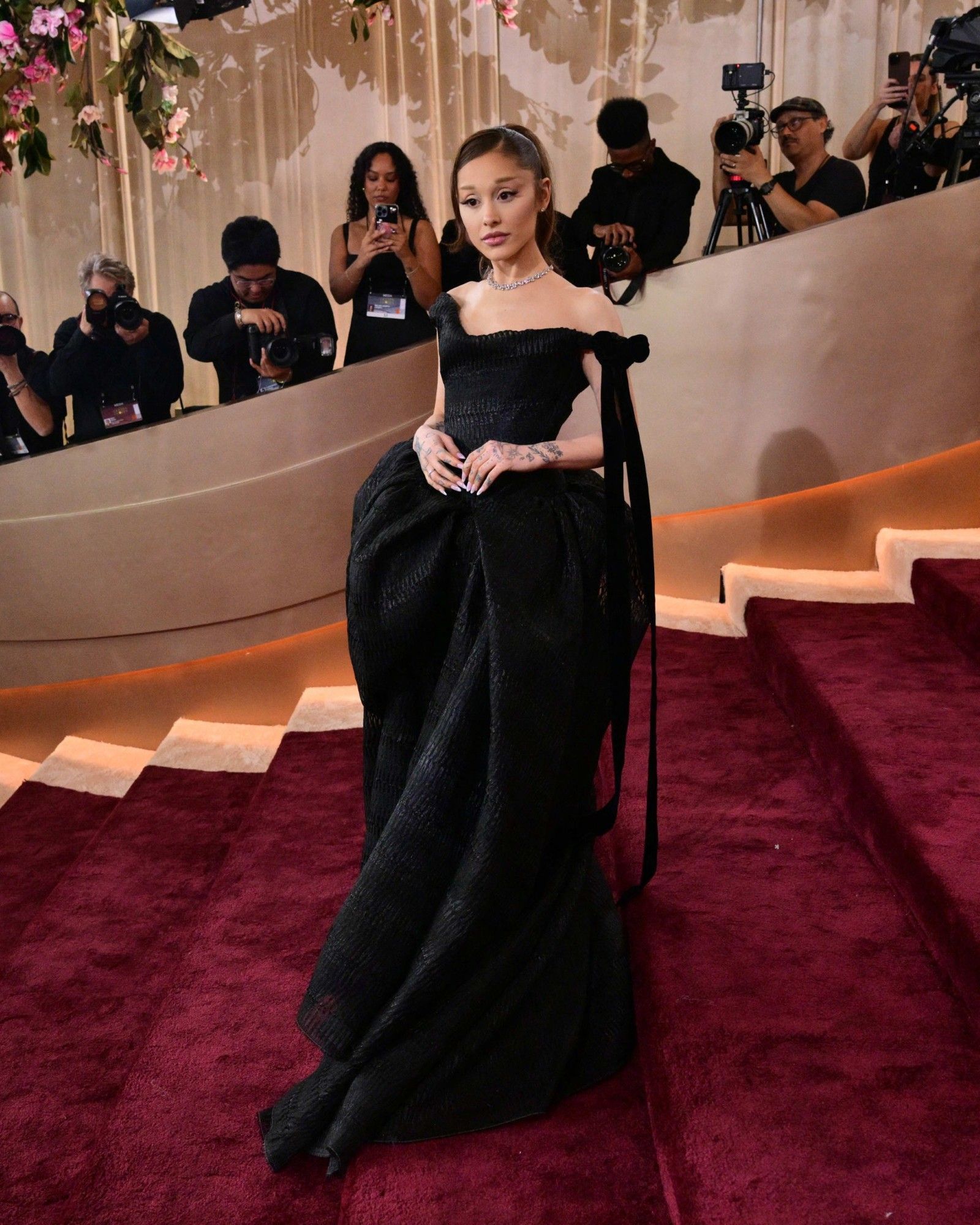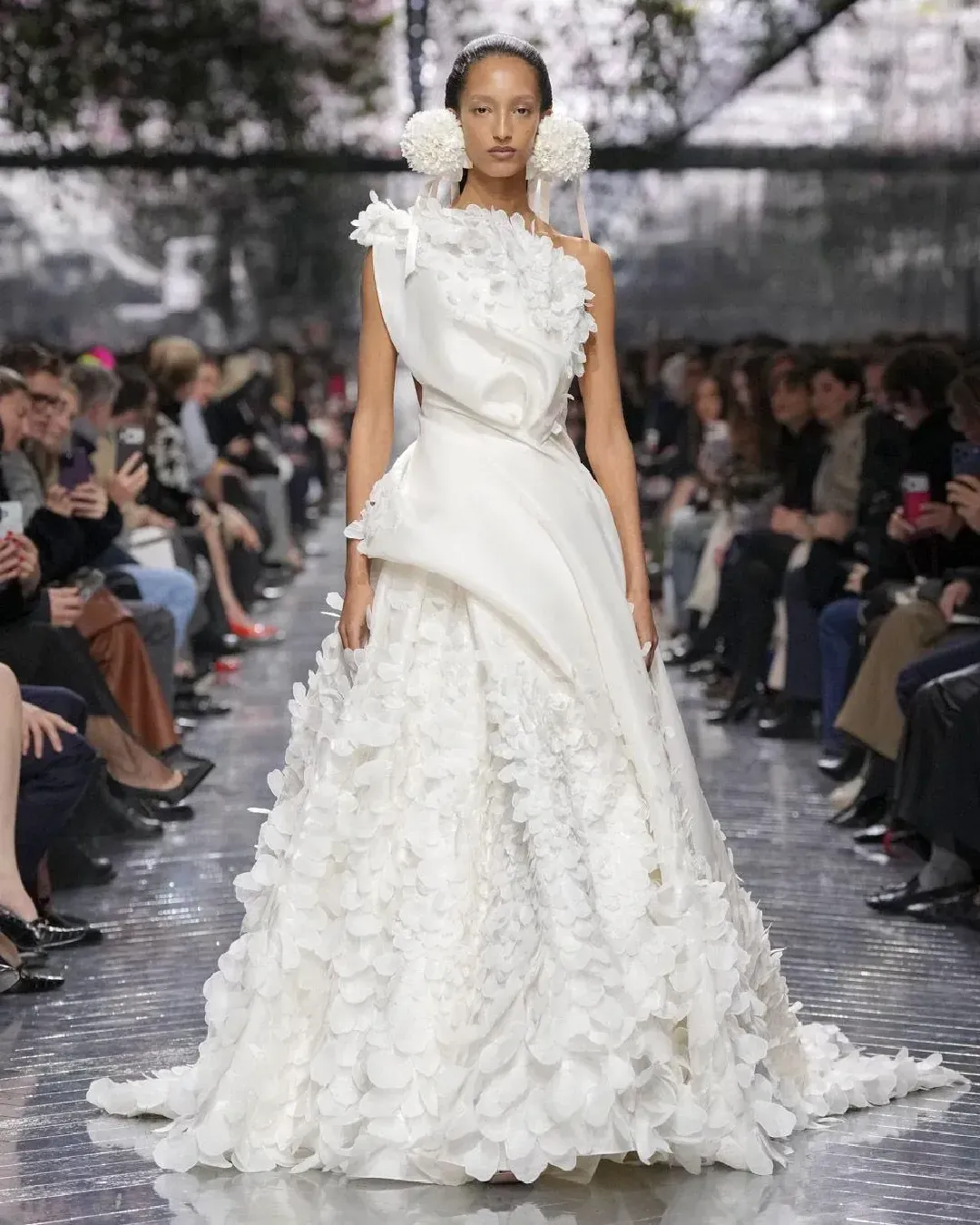
Can fashion afford to protest against capitalism? Reflections on the anti-capitalism phrases that appeared at the latest Dior show
During the second day of fashion week, Maria Grazia Chiuri presented her new SS24 collection for Dior. As is now tradition, the creative director involved an artist, in this case the Italian Elena Bellantoni, who curated a set-installation named Not Her that featured among others two statements such as “Capitalism won’t take her where she really wants to go” and “Our individual and collective transformation takes place in a radical and creative space”. Now, Bellantoni's installation is certainly an interesting work, using the stylistic devices of modern pop culture to present identity and philosophical statements - no less, almost everyone has noticed the jarring contrast represented by criticizing capitalism in the show of a luxury brand that belongs to one of the most capitalistic mega-corporations in the world. And the same goes for the quote about transformation taking place in creative and radical spaces, a phrase that makes perfectly relevant the original meaning of "radical chic" or a person who takes socially radical positions from a highly privileged socio-economic situation. Indeed, in recent times, declaring oneself to be opposed to capitalism is quite in vogue: in Cathy Horyn's interview with Demna, screened at the Triennale during fashion week, the creative director of Balenciaga said he had a socialist side; numerous other online personalities, then, espouse with their thoughts the ideals of a more just and equitable society but, with their wallets, cheerfully finance the most dystopian and capitalist corporations ever. But, in short, can an anti-capitalist fashion exist?
Statement-making scenography.
— Dior (@Dior) September 26, 2023
An unmissable aspect of the just-ended #DiorSS24 show by Maria Grazia Chiuri https://t.co/4LUL6J94Rh, the digital set installation, 'NOT HER', featured artist Elena Bellantoni's satirical takedowns of misogynistic advertising on enormous LED screens. pic.twitter.com/Stm5yYZATl
In The Capital, Marx criticized «the murderous, meaningless caprices of fashion»speaking of the waste and burden industry had on workers as early as the mid-19th century, affecting the household economies of many families who depended on the casual, anarchic production of the time by noting how luxury silk clothes were produced by seasonal workers dressed in rags. Another great nineteenth-century economist, Werner Sombart, defined fashion as «capitalism's favourite child» and, after all, all the much talk we have been having about overproduction, overpricing of clothes, exploitation of workers, and how the whole fashion system ends up weighing on the Global South only confirms this hypothesis. Writer Tansy Hoskins, author of Stitched Up: The Anti-Capitalist Book of Fashion, said in an interview with Refinery29: «Fashion brands are not people, they don’t have personalities or hopes or dreams. They are corporate entities who have one goal: To make more money than their competitors […] Social change will never come from fashion corporations, and it is wrong to believe that it ever could». In 2007, in the pages of the International Herald Tribune, Suzy Menkes asked this question about Vivienne Westwood, a notoriously anti-capitalist designer: «How dare she send out a show laced with anarchist messages, take her bow in a clinging dress with the word "propaganda" [...], announce that the spirit of her show is 'the ore you consume, the less you think' and then take the opportunity to launch her collection of punk safety pins in diamonds?» To which Westwood responded: «I don’t feel very comfortable defending my fashion except to say that people don’t have to buy it. You do have to consume. You have to live. If you’ve got the money to be able to afford it, then it’s really good to buy something from me».
@britishbeautycouncil Is buying less the way forward? The late Vivienne Westwood said: "Keep wearing things that you've really chosen and love, and that is status" #vivviennewestwood #fashiondesigner #vivvienewestwoodjewelry #fashion #clothing #designer #icon original sound - britishbeautycouncil
Wanting to take a liberalist position, it could be argued that each company has the freedom to promote its products in the way it sees fit. The ideological weight of the choice will then fall on the final consumer who either espouses or does not espouse those ideals, is influenced by them or, even, ignores them altogether when investing his or her own money - sure is that the typical luxury customer, the customer-type of Dior, say, will not pay too much attention to more subtle political and philosophical debates once in the boutique. They are a type of customer, after all, who profitably participates in the logic of capitalism since they're wealthy enough to buy luxury products. An established fact, however, is that today the idea of an ideology turned into a product, reduced to a T-shirt with a slogan on it, does not scandalize anyone -before fashion brands, the same happened with the famous Che Guevara T-shirt for example, an icon that survived precisely because of the economic system it was intended to subvert. But who today can seriously call themselves anti-capitalist? Some more, some less, we all participate in it, and our own political debate remains even today anchored in divisions into "right" and "left" as old and outdated as the Berlin Wall. And so far neither fashion nor any other real or supposed producer of culture has fueled or sent the debate forward outside the narrow circles of politics.














































